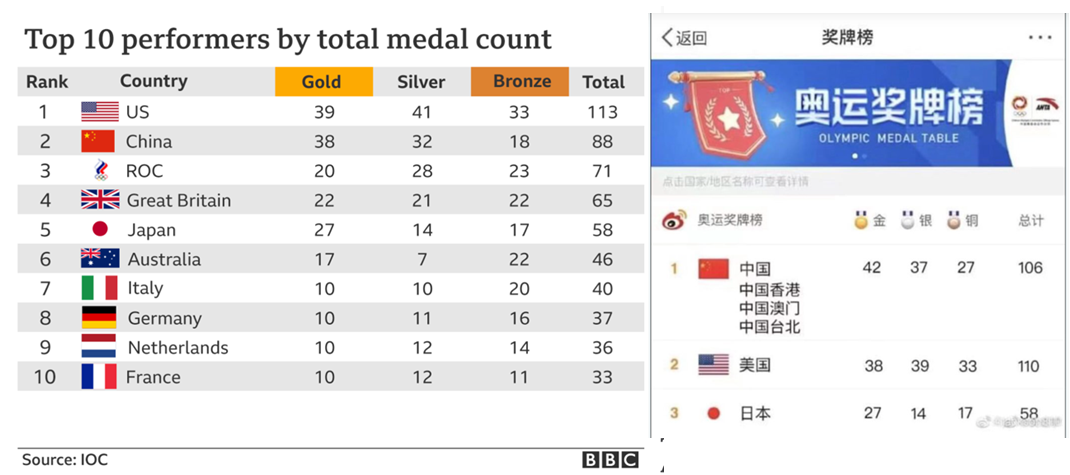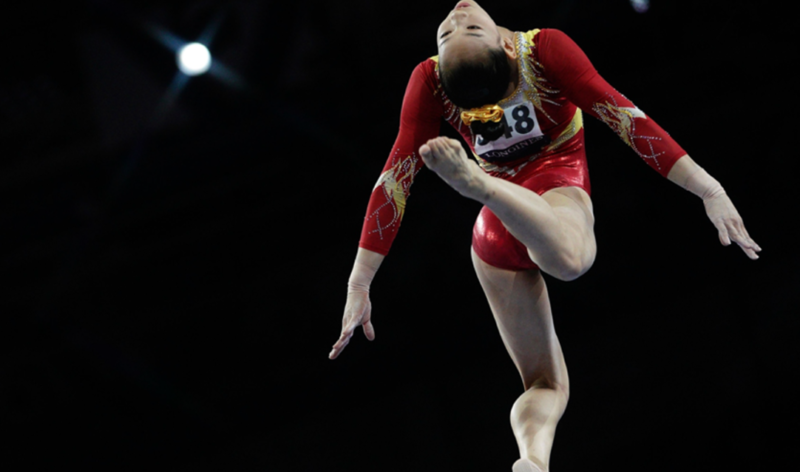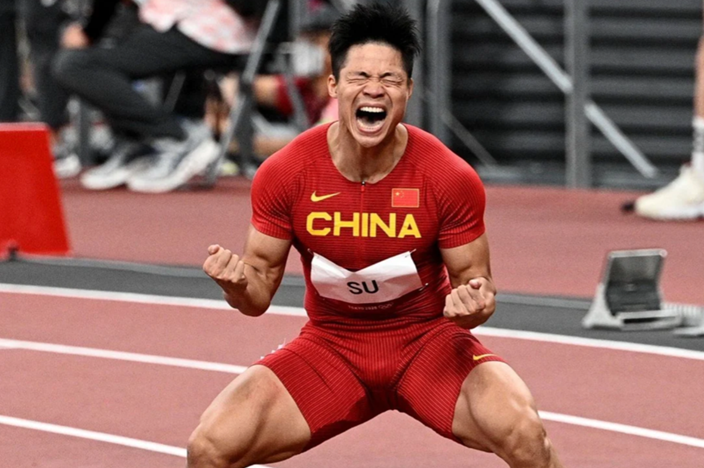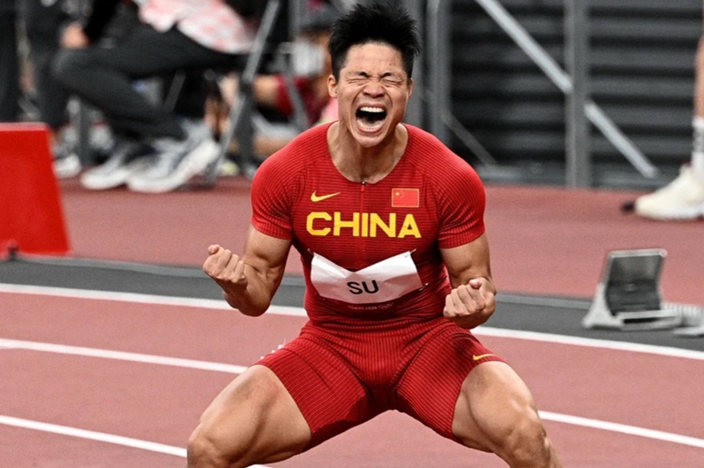Whether China won 38 or 42 gold medals, the Tokyo 2020 Olympics caused a rise of netizens commentary on Chinese social media. Through social media listening we gained a deeper understanding China’s national pride, but also openness and appreciation of other cultures. Here are the main takeaways from social listening regarding Chinese netizens reflections on the Tokyo 2020 Olympics.
Chinese netizens national pride is undeniable
How the 2020 Olympics fired up the US-China rivalry
Chinese netizens’ comments regarding the Tokyo 2020 Olympics brings about the US-China rivalry in sports. While US emerged first in the medal tally with 108 medals, and China with 87, Chinese netizens on Weibo were proactive in asserting China’s Olympic strength. For instance, netizens left comments such as “Even though the US has caught up with us, we should be able to see that we are in fact getting stronger and stronger” and “Not bad, we managed to surpass the US until the final day…”
China’s addition of medals from Taiwan, Hong Kong, and Macau
The rivalry between the US and China also revealed itself in how Chinese State-run media added in the number of medals China won to include Taiwan, Hong Kong, and Macau. This boosts China’s gold-medal count to 42, ahead of US’ gold-medal count of 39.

Left: BBC, IOC’s official medal count: US: 39 golds, China: 38 golds: Right: Republic World, China’s official medal count: US: 38 golds, China, 42 golds
Welcoming use of song against Japanese resistance by Chinese gymnast
During the Gymnastics Floor Exercise segment, Chinese gymnast Tang Xijing used “Jiu’er” for her accompanying music, a song against Japanese resistance. Chinese netizens were unsurprisingly mostly welcoming of her music choice, focusing on their pride at hearing a representation of Chinese spirit on a global stage. For instance, a netizen on Weibo expressed their wish that the Japanese audience could know the background of the song, because of how “it reflects true history”. Another Chinese commentator stated “I don’t think the song was meant to be ‘sour,’ especially playing in Japan, I think it was meaning to show the brave quality of young Chinese girls”. Chinese netizens reflections on the Tokyo 2020 Olympics highlight the uncomplicated, straightforward nature of their national pride.

Global Times, Chinese gymnast Tang Xijing
Hostility towards the Japanese team
However some Chinese netizens took the anti-Japanese sentiment to the next level. The loss of China to Japan in table tennis and men’s artistic gymnastics- sports in which China has traditionally dominated– triggered a wave of hostility against Japanese athletes on social media. Certain netizens mocked the Japanese team with the derogatory term “little Japan”. Vlogger Yi Jiliang- with more than 1 million followers- went so far to write on Weibo that “the anti-Japanese sentiment has been awakened”.
Presence of foreign Olympians on Chinese social media
With the rise of foreign stars on Chinese social media, Chinese netizens also increasingly have the opportunity to interact with foreign Olympians. As such, even while Chinese Pride was pronounced in Chinese netizens’ reflections on the Tokyo 2020 Olympics, Chinese netizens are not fully insulated within Chinese culture. For instance, Damian Lillard, US Basketball National Team member, posted on Weibo photos of himself and the US team from the 2020 Olympics.

Weibo, Chinese Weibo post by Damian Lillard
Shifting focus to overall appraisal of Olympians
Focusing not solely on medal tally, but also on well-being
Chinese netizens’ reflections on the Tokyo 2020 Olympics also highlight a focus which is not solely centred on medals, but also on Olympians’ overall well-being. For instance, a Chinese netizen celebrated how the Tokyo 2020 Olympics was the happiest, most carefree Olympics that she had viewed. She continued by stating how she especially enjoyed seeing the self-confidence, openness, and sunshine that China’s young competitors brought.
Chinese netizens also were warm and encouraging to Chinese Taekwondo competitor Zhou Lijun, even though she did not have a podium finish. Chinese netizens posted comments such as “it’s already amazing that you managed to represent China in the Olympics” and “Looking forward to seeing posts about your daily life!”

Xiaohongshu, Zhou Lijun post and netizens’ comments
An interest in the Olympian’s life beyond performance in specific sport
Beyond Olympic performance, Chinese netizens also appear to be interested in the daily lives of Olympians. A comment on Xiaohongshu, which garnered more than 20,000 likes, evoked holistic appreciation for one of China’s top Olympians, Guo Jingjing. The comment stated “I really like Guo Jingjing, not just due to her capability in diving, but especially because even after she married into a well-to-do family, she maintained a simple way of life. She’s really outstanding in both capabilities and personality!”
However, the focus on well-being was not extended to Simone Biles after her withdrawal
On the other hand, while most Western news outlets were supportive of Biles’ decision to withdraw from competing in most events, Chinese netizens were markedly less sympathetic. Posts were focused on how Biles had make mistakes on the Vault element. Comments stated how she had given up on her team, with certain netizens even asking if she had ‘stopped taking medicine’- an expression in Chinese which can be construed as a slightly derogatory questioning of one’s mental health. Relatively more positive posts on Biles also centred on how she praised China’s Guan Chenchen for winning the gold medal on the balance beam, an apparatus on which Biles herself won bronze.
Sprinting as a new national focus
A surprise breakthrough performance of the Olympics came from men’s sprinter Su Bingtian (苏炳添). Sprinting is not an area that China is traditionally strong in. Su Bingtian broke the Asian record in the men’s 100-metre competition with a time of 9.83 seconds, and became the first Chinese national to compete in an Olympics final for the event. Even while he eventually did not win a medal, China Central Television (CCTV) reported that Su topped China’s television ratings, landing first place in its top 10 most-watched events from the 2020 Tokyo Games.

AFP, Su Bingtian celebrating his men’s 100m semi-final win
On social media, Chinese netizens called Su “苏神”which literally translates to ‘God Su’ a term celebrating the legendary nature of Su’s breakthrough in Tokyo. Su’s breakthrough shows China that it can be good in areas that may not be within its traditional strengths, and hence serves as a source of inspiration for the nation. The evolution of the country’s focus on sprinting remains to be seen in coming years.
Overall Takeaways from Chinese netizens’ reflections on the Tokyo 2020 Olympics
Strong Chinese pride is evident from Chinese netizens’ reflections on the Tokyo 2020 Olympics, stemming in part from US-China rivalry, and which resulted in China adding medals from Taiwan, Hong Kong, and Macau in an effort to beat its rival’s medal tally. Social listening also reveals that certain netizens’ reflections can be construed as borderline belligerent against the Japanese team- especially when China did not emerge victorious against them. Chinese netizens’ reflections on the Tokyo 2020 Olympics also highlight that they are increasingly open to interacting with foreign Olympians on Chinese social media. Additionally, netizens also focus on the overall well-being of domestic Olympians, and not just the medal count. However, this empathy towards well-being did not extend as generously to foreign athletes like Simone Biles.





